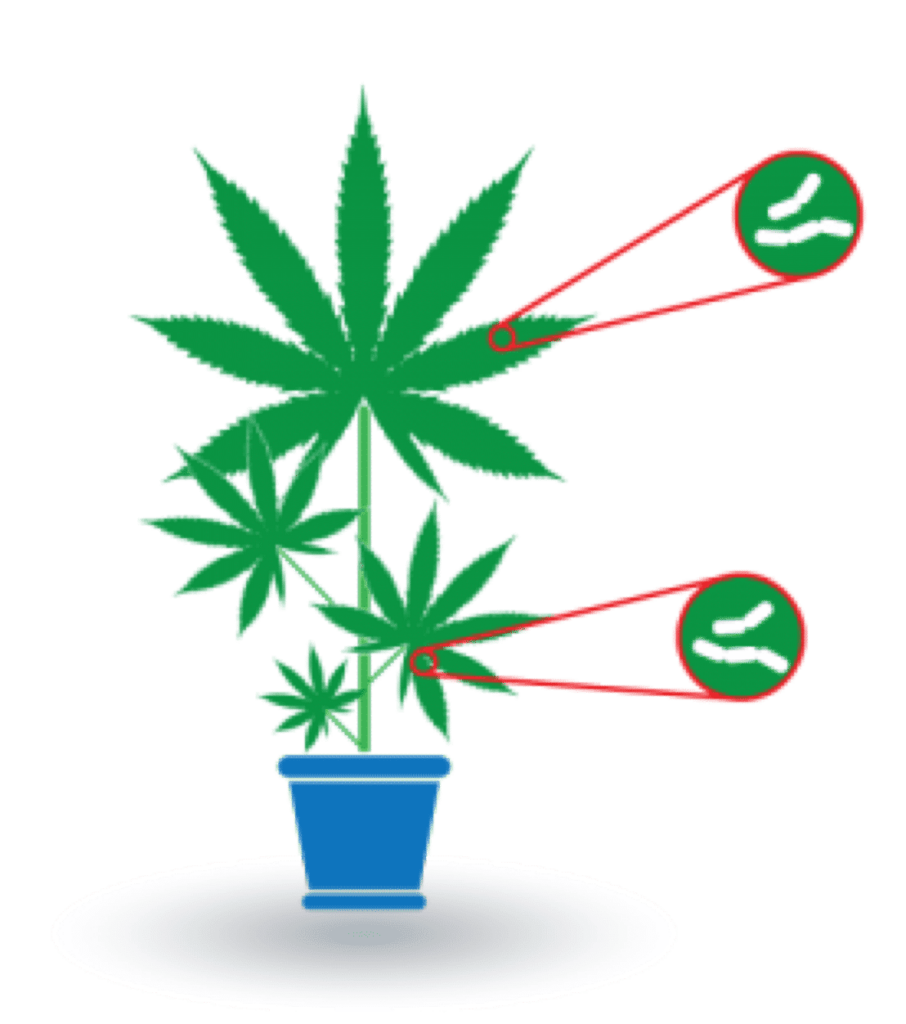Screen Incoming Clones
A single infected clone can spread pathogens through an entire grow. Don’t rely on visual inspections
Check Mom Before Cutting
Screen mother plants before taking any cuttings to reduce the likelihood that the dozens of clones derived from that mother contain pathogens.
Protect Grow Room
Periodic screenings of grow rooms or mother plants for pathogens can help identify infected plants before they spread.

